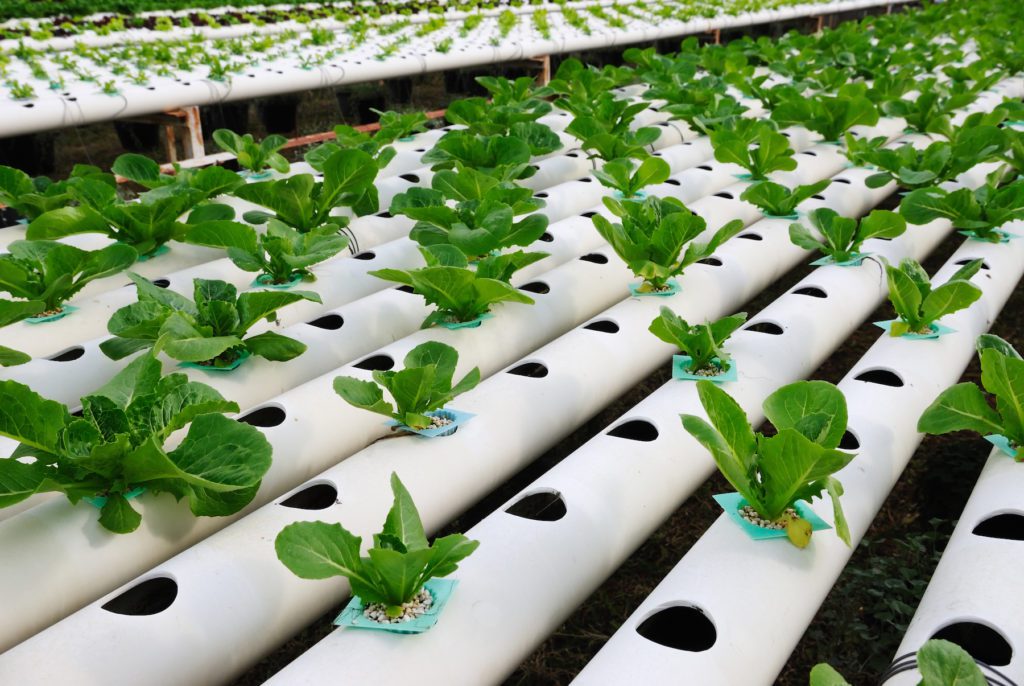Oct 7, 2020Northern Michigan University launches interdisciplinary indoor ag program
For the first time at Northern Michigan University, students have a hands-on opportunity to learn about the medicinal plant and food production industry.
The university has implemented the first interdisciplinary indoor agriculture associate degree program in the country this semester.
Assistant Professor Evan Lucas said by using an indoor growing system, students will be equipped to grow plants year-round in northern climates. The goal is to provide tools that lead to versatile careers.
“We’re trying to leave it open to have a lot of opportunities so students can go into multiple different industries and multiple different job positions,” Lucas said. “So, we’ve worked with industry professionals all across the U.S. from New York City to Hawaii and even Canada a little bit, too.”
The program will prepare students for careers in medicinal plant and agricultural food production, as well as the indoor growing system industry. It will also empower them to grow plants year-round in northern climates, addressing potential food insecurity issues.
“This is the first program we know of that focuses equally on both plant growth and the indoor growing environment,” said Evan Lucas, an NMU construction management professor who co-authored the proposal with biology professor Donna Becker and SELPS instructor and Seaborg Center STEM consultant Kim Smith Kolasa.
“We met with several cannabis industry representatives, who indicated they would hire every grad we put out,” Kolasa said. “They say our curriculum is spot-on and our students will be highly employable with varied skill sets related to growing operations that are integral to the cannabis industry. With a cross-disciplinary approach, there are lots of available jobs. This program is very hands-on and applicable to all indoor growing scenarios.”
Through an exploration-based curriculum, students will learn about associated growing and environmental infrastructure systems. These include hydroponics, aquaponics and aeroponics. They will also delve into other aspects of indoor agriculture: space design and construction, facility maintenance, climate-control systems, plant biology, chemical and nutritional makeup of plants, and basic business and accounting practices.
Becker said the decision to take a collaborative approach was reinforced at the most recent American Society of Plant Biologists international conference, where experts urged students to gain this type of training to more effectively address food security issues.
“There’s a surge of interest in this with cannabis legalization, but also from the perspective of how indoor growing can help to feed the world population,” Becker said. “We think there’s huge potential for students coming out of this who might want to pursue a career in the agriculture industry. Tumultuous weather patterns caused by climate change and the increasing global population amplify the need to look beyond traditional outdoor agriculture for more efficient and sustainable farming options.”
The new associate degree will complement and ladder into existing bachelor’s degrees such as medicinal plant chemistry, botany and business.
“The future plan is to add a bachelor’s degree in indoor agriculture,” Lucas said. “That degree would include more research on efficiency of plant growth within different settings, culinary collaboration, business and property development, and additional plant growth courses focusing on both production and business.”
Burgeoning growth in indoor agriculture is evidenced by a multitude of new, indoor horticulture businesses being established across the country. NMU could potentially cultivate connections with such ventures for internships and job opportunities.
There is also a surge in horticulture-based programs in K-12 schools nationwide. New York Sun Works, which established 138 rooftop greenhouses and installed 387 hydroponic growing systems in converted classrooms in the city, was NMU’s first collaborator and a model for what’s envisioned for the indoor agriculture program. Some NMU planning committee representatives visited the flagship school in New York City.
The NMU Board of Trustees approved the program at a special meeting held March 24 via distance technology. The program is being housed in the Jacobetti Complex. Enrollment is projected to range from 150-200 students within the first several years, depending on lab capacity and growing space.
For more information on the program, visit https://www.nmu.edu/tos/indoor-agriculture.
– Kristi Evans, Northern Michigan University















